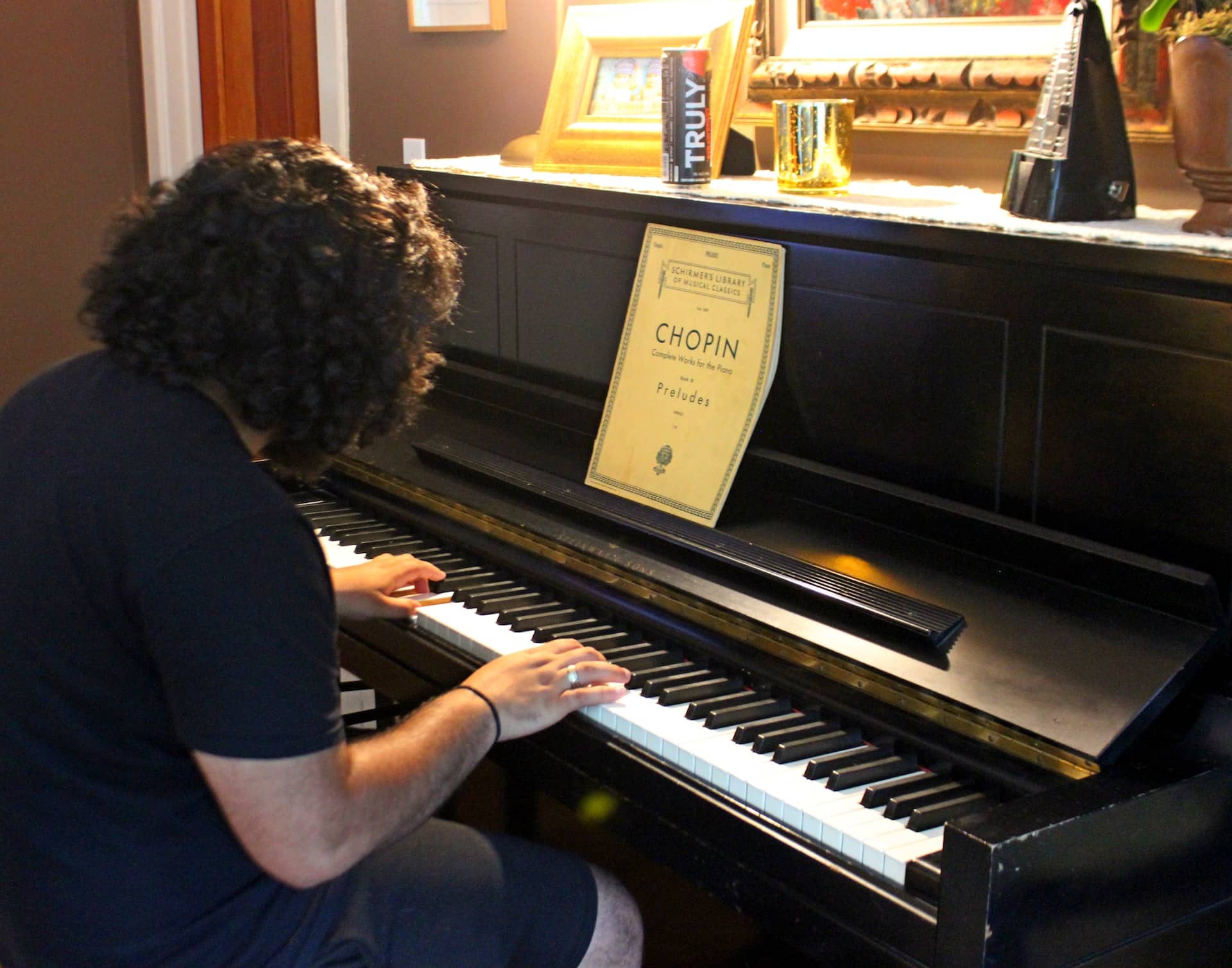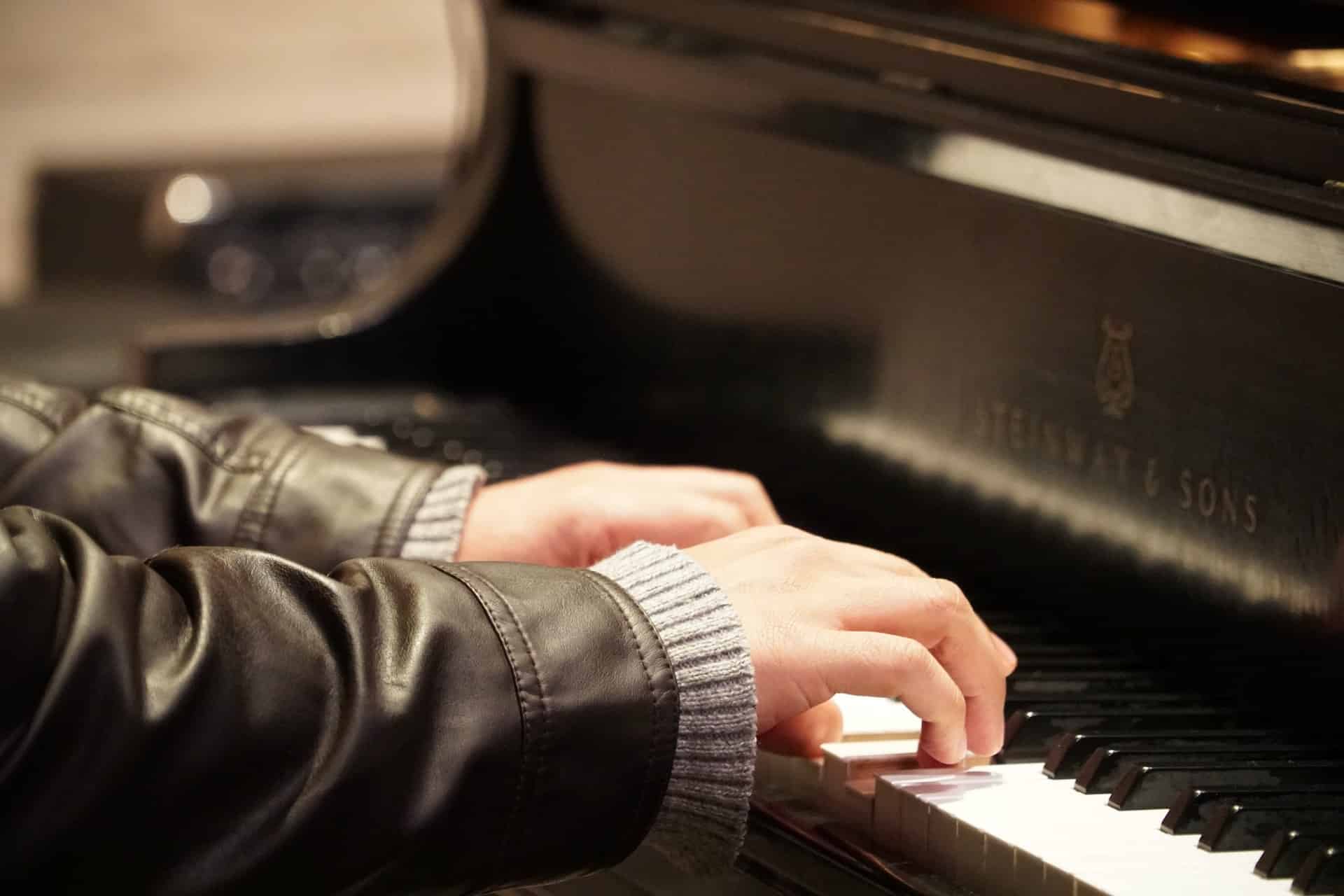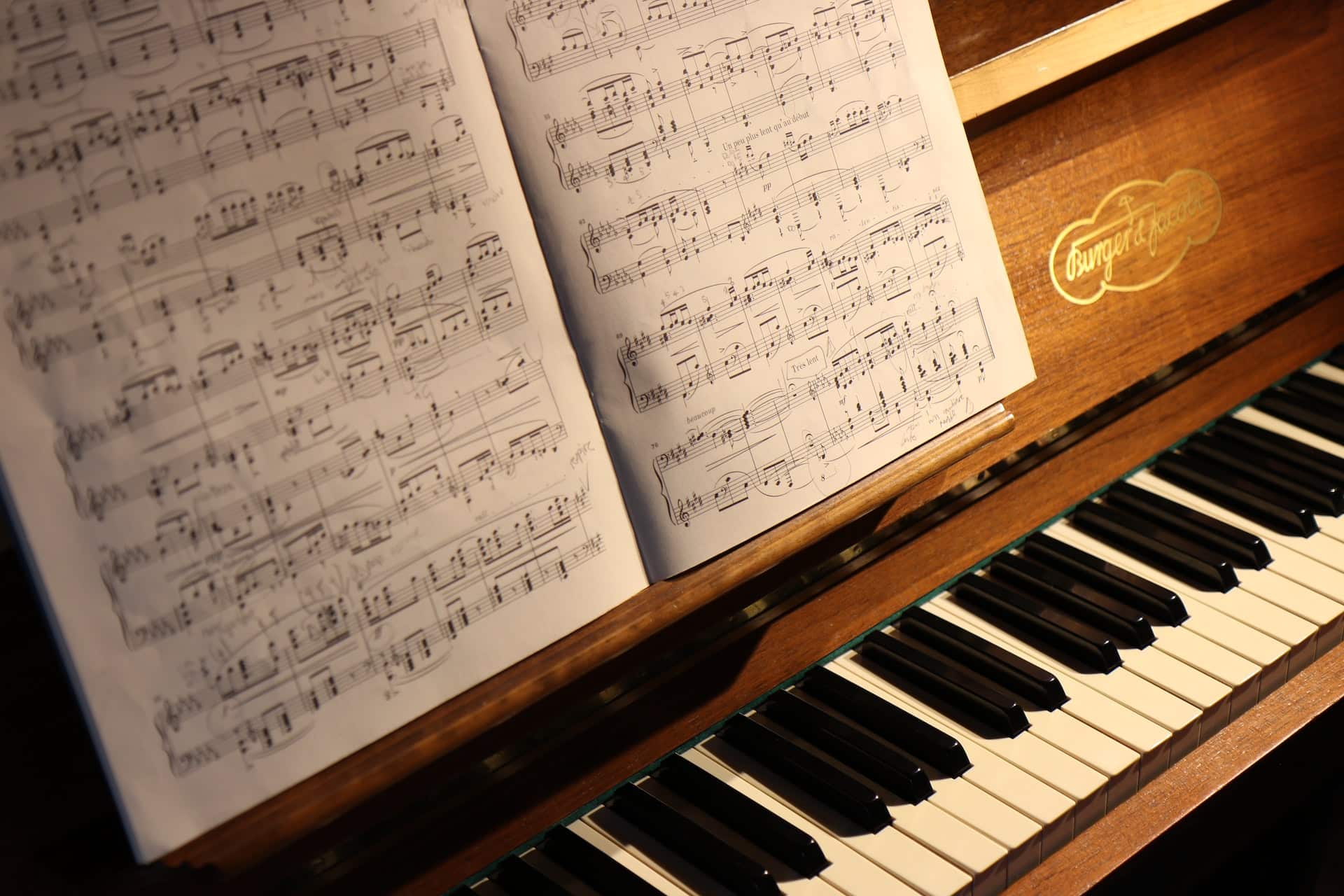Distinction: the very word gives a sense of superiority. Oxford defines distinction as 'the quality of being very good'. Alternatively, they offer up 'better than other things of the same type'. Let's pause on that definition for just a sec.
Piano exams follow the same marking scale as academics. A superlative academic paper would earn a student an A. Top marks, in other words. A less prepared pupil might squeak by with a C. Such a grade reflects satisfactory achievement but no remarkable effort. Doesn't that standard range of marks represent distinction? Only if we consider that word's primary definition: 'a difference between similar things'.
Now, let's add another layer of confusion. The Australian Music Examination Board (AMEB), uses academic grading marks. 'A' rests at the top end of the scale. 'D' denotes the lowest possible score. However, the AMEB grades do not correspond to academic grades' point spread.
The AMEB does not dole out any Fs. Should an exam candidate not meet the exam's requirements, they're returned an 'Unable to Assess' (UA). It's similar in nature and intent to the academic "Un-Graded' (UG). And all of this skates around a fundamental question. How could there be anything higher or better than top marks? That's what we explore today.

The AMEB Grade Breakdown
In a separate article, we cover the complete range of piano grades. We also go over what it takes to complete them. Here, we touch on them lightly, only to better understand what distinction represents.
In a sense, you might say that AMEB's rating system is a pass/fail proposition. If a piano player demonstrates adequate achievement for their level, they are accorded a Pass; a C mark. That mark is awarded based on the student's musicianship and technical abilities. Also, how well their style has developed in line with syllabus objectives.

Anything below a C is deemed not satisfactory. Anything above a C represents some level of distinction. A candidate may be awarded a C+ if they demonstrate more than adequate achievement. But only in some of their syllabus' objectives; not overall.
The B range (B and B+) is reserved for piano players who have made remarkable strides in mastering syllabus objectives. Their performance may be uneven across all elements (B). Or it may reflect extraordinary achievement (B+). The B-range is called Pass with Credit.
the A mark is awarded to those who Pass with Honours. These piano players have more than met their syllabus objectives. They've moved into demonstrating mastery of phrasing and intonation. They play the piano with heightened stylistic awareness. What could there be beyond that?
What Is an Award With Distinction?
The band Queen is known for many things, not the least of which is making great music. Much of Queen's genius flowed from the group's remarkable frontman, Freddie Mercury. He wowed the world with his stunning vocals and outrageous costumes. He's less renowned for his piano playing.
Freddie's sense of style didn't just express itself in his plumage or the songs he wrote. Even though he studied the piano only during his childhood, he had an instinctive flair for playing. Lightning fast chord changes, dramatic key signatures and exaggerated movements were all a part of his repertoire. If you can play the piano like Freddy Mercury, consider yourself a candidate for a Pass with High Distinction.
That's not hyperbole. The AMEB's Pass with High Distinction covers everything included in the Pass with Honours (A) mark. Distinction takes honour further. It rewards performance flair, technical fluency and compelling stylistic insight. In other words, Freddy-Mercury-level expression. Could you skip a grade in piano and still earn such a distinction?

How Can a Piano Player Earn a Distinction?
There's no guaranteed formula for piano players to earn a distinction on their exams. Simply emulating the Queen frontman won't work. Especially if such a flamboyant style doesn't suit your personal aesthetic. However, a few characteristics can set your piano performance apart.
Your timing should be fluent yet fluid. In most pieces, you have a bit of tempo flexibility. Judicial use of expressive timing could mark you for a distinction.
You could also earn distinction for how you express tonal qualities. You 'sign' your piano playing by how you project timbre, play intervals and articulate pitches. The AMEB examiners look for those qualities in their search for your distinction.
You shouldn't confuse tone with pitch. Pitch addresses the notes and how you play them. Distinction is considered when a piano player hits every note correctly, with the proper tone.
Distinction favours piano candidates who play with vivid expression. Thus, you should choose well-shaped pieces to perform for your exams. Avoid meekly-rising melodies. Make your selections stand out with a blend of arch-shaped and steeply rising melodies.
Your performance ties all of these elements together. Come show time, everything tells your examiner the calibre of player you are. Walk confidently as you enter the exam room and approach the piano. Introduce each piece with authority. Play your selections as though your very soul is dancing over the keys.
Consider that you might deliver technically flawless performance and not merit a distinction. Your pitch and tone may be spot-on and your timing just right. But if you dwell on all of the grades' elements, there will likely be no heart in your playing. You can earn honours for your skill at the piano. Distinction rewards passion.
Learn everything you need to know with piano lessons online on Superprof.
Tips to Earn a Distinction
As mentioned above, there is no foolproof way to guarantee yourself a distinction on your grade exam. However, there are a few ways to make it more likely you'll earn a Pass with High Distinction. Superprof shares some tips to help you prepare.
Master the Basics
Keep in mind that piano players can earn a distinction at every level. The best chance for distinction is knowing your scales backwards and forwards. That's true whether the exam candidate tests at Level 1 (Preliminary to Grade 4) or Level 2 (Grades 5 through 8). Working on your scales builds muscle memory, which will guide your fingering without having to think about that aspect of playing. Scales may sound boring and repetitive but they are absolutely vital to your chances of earning a distinction.
Work on Your Skills
Besides fingering and building muscles to maintain your posture - a critical component of good piano playing, you need to get good at sight-reading. Depending on your exam, examiners will present you with a piece that's not included in your repertoire. You will then be asked to either hum it or play it.
Aural skills are also important. Some AMEB exams feature an aural component. The examiner may play a short melody that you'll have to hum, note for note. Or the examiner might play a melody and ask you to name its qualities and technical features. Finally, the examiner might play a short melody twice. Only the second time, they will misplay some part of it. You will have to identify what was played wrong, and what the error was.
Not all exams include sight-reading and aural components. Whether your chosen AMEB exam course does or not, it is still a good idea to build these skills. At the very least, they will further your musical career.

Build Your Confidence
Take a moment to reflect on a confident person's posture. Don't they stand with their feet planted, back straight, shoulders aligned and head held high? Doesn't that sound an awful lot like the piano player's posture?
You can train your body to reflect a confident pose while at the piano. In fact, your piano teachers have probably adjusted your posture, especially in your early playing days. However, you could betray your confident pose by playing uncertainly. And your examiners will notice the disparity. Playing confidently means having the confidence to play. Belief in your talent and skill will be mirrored in your posture.
Find piano lessons Brisbane easily on Superprof.
Choose Your Selections Carefully
Many piano players believe that playing the most complex pieces will bring them closer to a distinction. Complexity is good but it's more important to choose pieces that reflect your personal aesthetic. If you don't exude a Liszt temperament, it's best to leave those selections aside. Conversely, if Liszt is your style, don't hesitate to relax a bit beyond his Sonata in B Minor, even as you include one of his pieces in your repertoire.
Practice
Some piano exam candidates approach piano practice with grim determination. Sometimes, it works for them. Often, they forget that playing the piano is not just work. It's also a passion. Practising until your fingers are numb is counterproductive.
Practising until you've exhausted your passion for that session is perfect. Preparing for your piano grade assessment shouldn't revolve only around playing the piano. It should include reviewing general knowledge questions, developing your skills and exploring new music and composers. Take a break from the keyboard to review those academic components. You can always return to the piano once you feel re-energised.
Find your perfect piano teacher here on Superprof.
Summarise with AI:















